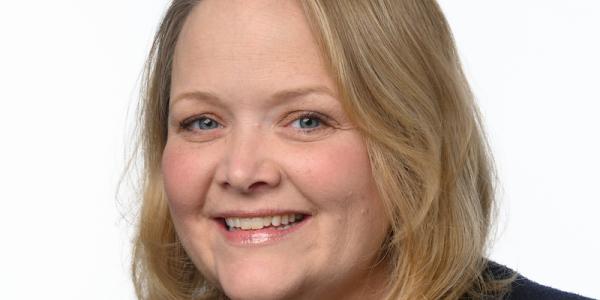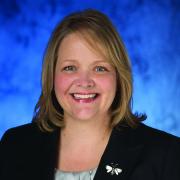Making Connections. For Too Many, Family Child Care Is a Cheap Disinvestment Strategy

You are here
Early childhood education in the United States has always been delivered through a mixed delivery system that has been intended to prioritize family choice. That is, there are a variety of settings in which children birth through age 5 can spend their days. However, actual family choice is often elusive: choices are most often driven by what families can afford or by what is available and convenient.
Child care can be formal or informal. Formal (licensed/regulated) settings include center-based programs (profit and nonprofit), public schools, Head Start, military child development centers, and licensed and regulated family child care. Informal settings encompass family, friend and neighbor care, and in-home care with nannies and babysitters, all of which are typically unlicensed. This mixed delivery system is situated within more than 20 years of neuroscience research and almost the same amount of economic evidence that point to remarkable outcomes for young children who are able to access high-quality early childhood education—the hallmark of which are highly skilled, well-compensated early childhood educators.
By now, the debate should be over as to whether high-quality early childhood education and child care can be aligned. Both have to keep children safe while their parents work and provide experiences that maximize a child’s social and emotional, cognitive, physical, and language development. The systems and structures we fund with public tax dollars should insist on a floor of quality, where families have real choices and where all early childhood educators have knowledge, skills, and competencies aligned to professional salaries, health insurance, and retirement benefits.
As the Unifying Framework for the Early Childhood Education Profession was created, we heard from thousands of family child care providers, the majority of whom are longing to be recognized for the professional knowledge, skills, and competencies they hold, for the critical role they play in the early childhood education system, and for the microenterprises they are. They want to be held accountable for the criteria it will take to be early childhood educators; they want their homes to be considered viable settings in which to deliver high-quality early childhood education from birth through age 5; they want to be recognized and compensated for their degrees and credentials. Many of the educators we heard from hold associate, bachelor’s, and master’s degrees in early childhood education. However, the feedback was divided, as there are providers who are not interested in becoming early childhood educators and prefer to not participate in the public subsidy system. The Unifying Framework acknowledges these differences and proposes a path forward that recognizes these differences.
The structural barriers to a fully equitable system for family child care providers are real, as we heard and documented in our report with The Education Trust, Increasing Qualifications, Centering Equity: Experience and Advice from Early Childhood Educators of Color. Full access to higher education, for example, is often out of reach because of the costs, lack of financial aid, location of programs, the inability to find night and weekend classes, or to afford and find substitutes who can be with children while a family child care provider is at school. There is an enormous physical and emotional toll to bear from working 12-hour shifts educating and caring for children while simultaneously attending class and completing rigorous degree programs.
Licensed and regulated family child care homes can be the preferred setting for many families. They are eligible to serve both children who qualify for public support and private-pay families. Still, between 2005 and 2017, licensed and regulated family child care declined by 42 percent. This was likely due to the instability of the business model and tough working conditions.
Family child care homes are at the center of many policy conversations these days. Providers are eager to be counted and recognized and to have the structural barriers that prohibit full participation in services and supports to be acknowledged. However, in too many policy conversations, family child care is being discussed in the context of spending minimal public funding on early childhood education, and reducing or eliminating the public sector’s responsibility in licensing the marketplace to protect the safety and health of young children in out-of-home care.
Family child care providers who participate in the formal system of care, who meet all the criteria (licensing, quality, and credentialing), deserve to have access to all the systems and supports that come with participating in that system. They should not be othered or disregarded as the cheaper alternative. As we continue to press for public funding to pay the full cost of care, our efforts include licensed and regulated family child care home providers. They too must
- be compensated with professional salaries, health insurance, and retirement benefits commensurate with their knowledge, skills, competencies, and degrees
- have full access to higher education, which includes debt-free college education and substitute relief to attend classes
- be afforded the opportunity to fully participate in shared services models where they can leverage the buying power, accounting, and human resource costs within a network of providers
As advocates for and allies to family child care providers, don’t be duped by politicians who are looking to deregulate in the name of “full inclusion.” Let’s actually put the financing and structural supports in place so that family child care providers can be fully included in a well-financed, economically stable, and user-centered system that gives families real choices, imparts the maximum development and learning benefits for children, and recognizes early childhood educators for the critical role they are playing in society.
Copyright © 2021 by the National Association for the Education of Young Children. See Permissions and Reprints online at NAEYC.org/resources/permissions.
Rhian Evans Allvin is the chief executive officer of NAEYC. She is responsible for guiding the strategic direction of the organization as well as overseeing daily operations. Before joining NAEYC, Evans Allvin was a guiding force in Arizona’s early childhood movement for more than 15 years, including serving as CEO of Arizona's First Things First.
